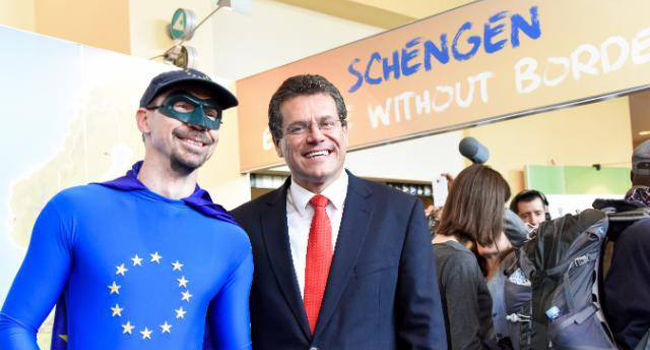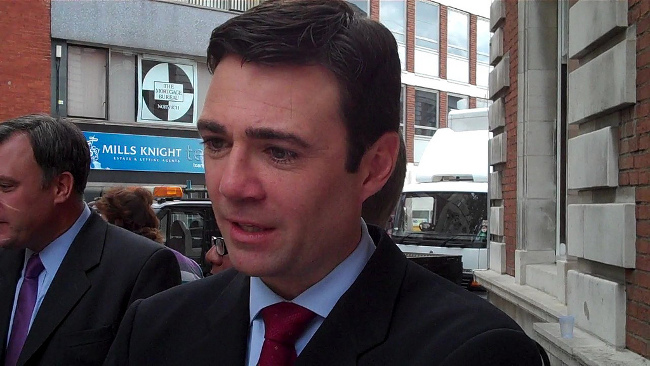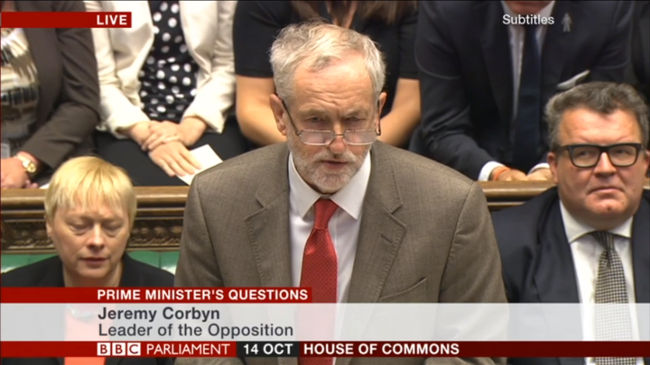What do actress Jennifer Lawrence and the politician Theresa May have in common?
Plenty, to be fair. They are both white, Western, English-speaking women, which already puts them close together in the potential spectrum of human differences.
But according to Marisa Bate, a writer for women’s website the Pool, they are also both under undeserved pressure to be liked because of their sex. According to Bate, “likeability is another way of telling a woman to put up and shut up.”
Her comments follow after Lawrence wrote a letter for the newsletter Lenny’s Letter, put together by Girls creator Lena Dunham, in which the actress complained about being paid less than her male co-stars in the film American Hustle:
“I would be lying if I didn’t say there was an element of wanting to be liked that influenced my decision to close the deal without a real fight. I didn’t want to seem ‘difficult’ or ‘spoiled’. At the time, that seemed like a fine idea, until I saw the payroll on the Internet and realised every man I was working with definitely didn’t worry about being ‘difficult’ or ‘spoiled’.”
Bate compares this to Theresa May, who told a women’s conference earlier this week:
“It’s always easy to say something in order to be liked. It’s harder to do something you believe but that people don’t like.”
It’s long been said that women generally lack assertiveness, and that men (and even women) often see behaviour from women as bolshy that in men is merely bold. As Bate puts it:
“When women are likeable, they are digestible, manageable, without opinion and without trouble. Theresa May and Jennifer Lawrence’s refusal to be likeable makes me like them all the more.”
But there is something unconvincing in all of this, which is that politicians and actors male and female are in the business of being liked.
Indeed, one of May’s principle weaknesses as a future Tory leader is that she seems so humourless and uncaring. Her pitch to the Tory right with a now infamous anti-migration speech at the party conference in Manchester last week would have alienated many even if she had a penis, as would her streak of authoritarianism.
Compare her to Boris Johnson, a politician so well liked he is referred to by his first name, and one will see the difficulties May has put herself in with her “tough” approach. Compare also to George Osborne, once vilified for his cuts, and we also see that behaviour seen as nasty can damage politicians male and female.
The only thing that would remove this political obligation to be liked is a weak opposition, which is one reason why the Tories are willing to roll out a package of extensive cuts this parliament, damn the bad publicity.
Actors like Lawrence are not immune from this. Some may be able to get away with coming off as arseholes, but if that is so it is because their brand is so big that people will work with them however difficult they are – which is to say if Lawrence can behave how she wants it is because she is already in a good bargaining position.
Sure, men have more leeway to be dicks, socially speaking. We are also generally more assertive, and to some extent that is reinforced by society. But being liked will always be an advantage in life to both men and women, and to claim that it is laudable to be disliked is naive.
Image Credit – Jennifer Lawrence, June 2015 by alien_artifact




